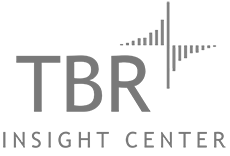Quick Quantum Quips: A call for quantum supremacy sends ripples through the market
The quantum market changes rapidly, and the hype can often distract from the realities of the technological developments. In our new monthly newsletter, Quick Quantum Quips (Q3), TBR will brief readers on the latest market announcements, stripping that hype to dig deeper into how recent events will impact the market as a whole. To schedule a time to chat with Analyst Stephanie Long or another one of TBR’s quantum analysts about any of the insights below, contact her at [email protected].
October 2019 developments:
- Google claimed it achieved quantum supremacy in mid-October, sending ripples through the quantum community. Quantum supremacy is a key milestone many leaders in the quantum computing space have been working toward for years. If true, this milestone would mean that quantum theory has successfully been translated into practical applications, so such a claim has major implications for the industry overall. Google claims its quantum computer was able to perform a truly random number generation in 200 seconds — and that the task would have taken a supercomputer 10,000 years to complete. Further, truly random number generation is necessary for quantum-safe security solutions, making this announcement a multifaceted milestone in the quantum community. Critics of Google’s claim state that it is possible to achieve very similar results in 2.5 days on a supercomputer, although it would require 250 petabytes of storage to do so, potentially diminishing the size of Google’s “milestone” achievement but confirming it as an achievement nonetheless.
- IBM has been in the news consistently during October for its strong claims against Google’s quantum supremacy claims. TBR believes that the strong opposition signifies the power being the first company to achieve quantum supremacy can hold as well as the damage to the industry an unrealistic claim can cause through false hyping of the technology. The industry already struggles with hype, which pushes C-Suite executives to invest in and expect quick results from a technology that is meant for the long game, and skewed claims only stand to increase the negative impacts of the hype. As such, IBM has made a significant effort to minimize the hype surrounding Google’s announcement to reveal the complete facts surrounding the achievement.
- IonQ received its latest round of funding in October — to the tune of $55 million. Samsung and a sovereign wealth fund of the United Arab Emirates led the funding this round, while Google, Amazon and New Enterprise Associates re-upped their commitments from earlier funding rounds. The investments in IonQ are significant, as the list includes some potential competitors such as Google. TBR notes that Google is investing in superconducting quantum computing, which presently leads the charge in terms of advancements. However, IonQ’s theory of trapped ion quantum computing is unique in that it does not require cryogenically cold environments to function, making its approach seem more realistic in that it would have broader, more practical commercial applicability. TBR believes Google’s investment in IonQ demonstrates its strong cash position and focus on the applied uses for quantum over being wedded to any particular hardware structure. Google, like many enterprises, is more focused on application exploration rather than the sale of quantum systems.
- In a true demonstration of the sheer power quantum computing can unleash, customers are jumping on the innovation train to accelerate the development of both the technology and related skills. Airbus announced that it has compiled a list of leading experts to act as judges for its quantum computing competition. The Airbus Quantum Computing Challenge launched earlier this year and is designed to encourage experts and those interested in quantum computing to tackle some of the more complex computational problems for aerospace. All proposals needed to be received by Oct. 31 and are now being reviewed by the team of judges that Airbus compiled. Jury members come from all geographies and from both industrial and academic organizations, including QC Ware, Horizons Quantum Computing, the University of Waterloo, the University of Technology Sydney, QuSoft, the University of California and more. The announcement is significant because a commercial enterprise is recognizing the value quantum can bring to its business and displaying an eagerness to contribute to the advancement of the quantum ecosystem.
- QC Ware unveiled the list of speakers for its upcoming quantum computing event, Q2B. The event will take place in California in December. Program details can be found at the link provided.
If you would like your company’s announcement featured in an upcoming Q3, contact Geoff Woollacott to coordinate a conversation.



Leave a Reply
Want to join the discussion?Feel free to contribute!